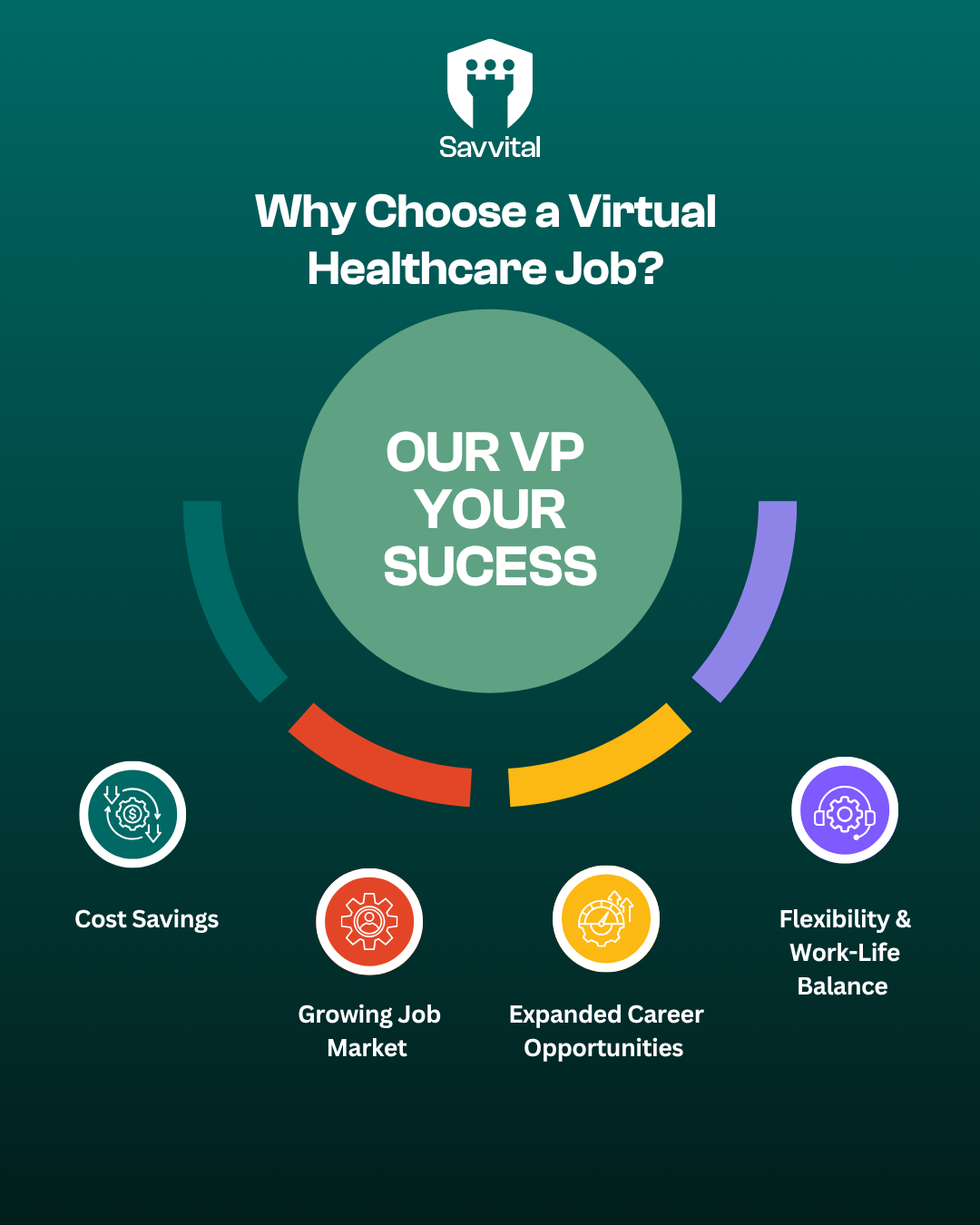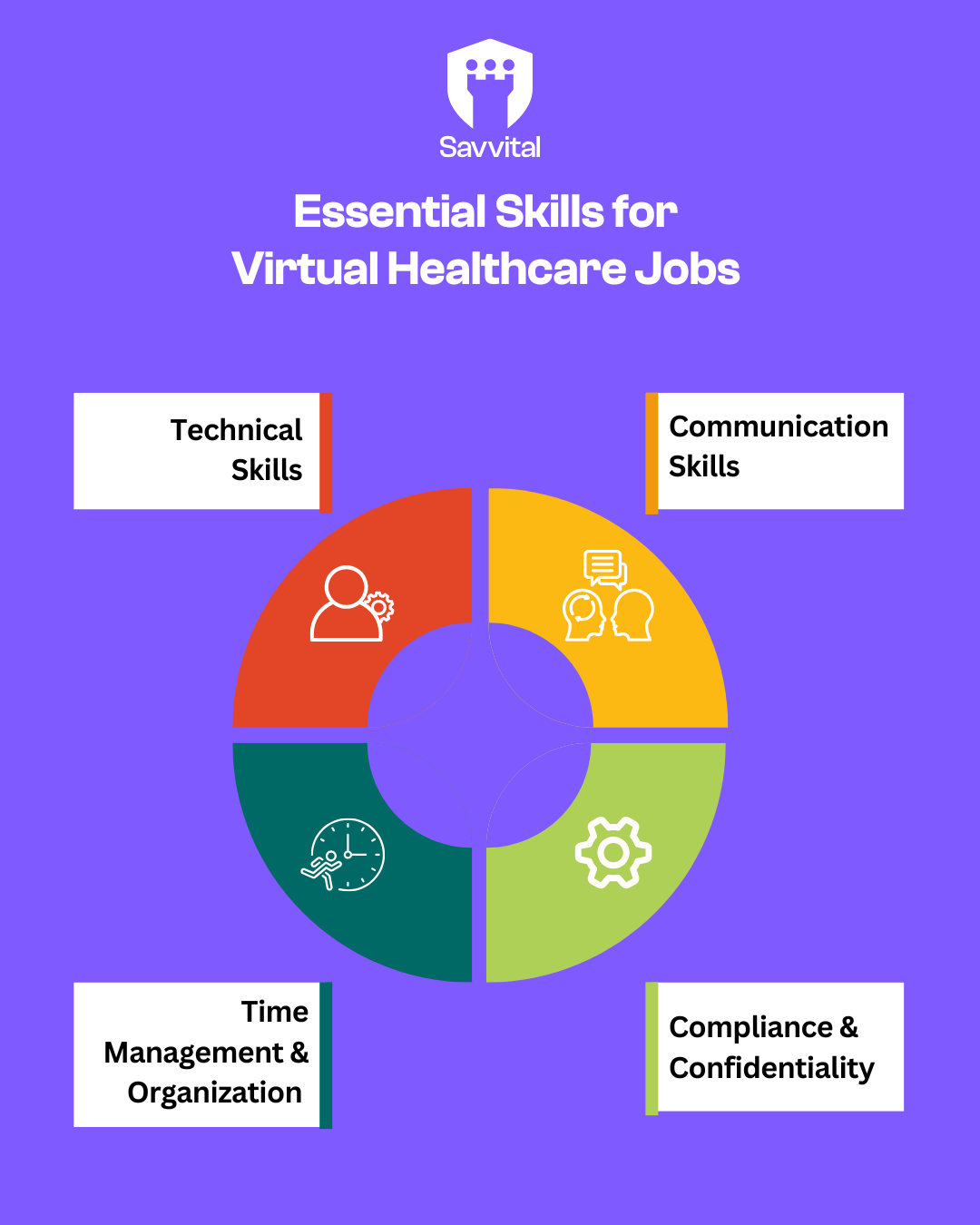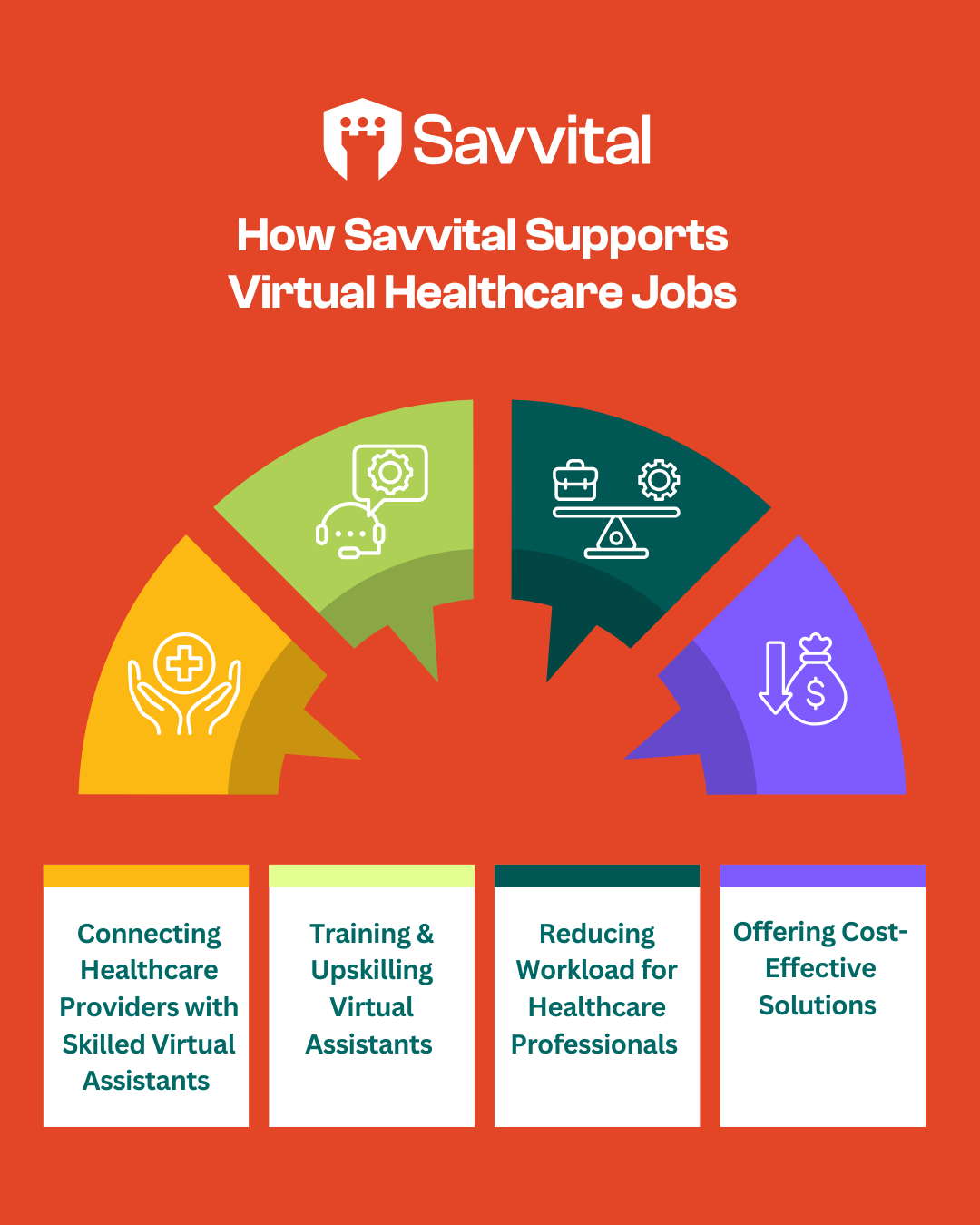
Virtual Healthcare Jobs: Opportunities & How to Get Started
The healthcare industry has evolved significantly over the past decade. One of the biggest changes is the rise of virtual healthcare jobs. As technology advances and telehealth services grow, more healthcare professionals are working remotely. Whether you’re a doctor, nurse, medical coder, or administrative assistant, there are numerous opportunities to build a career in virtual healthcare.
In this blog, we’ll explore the different types of virtual healthcare jobs. Their benefits, the skills you need, and how to get started. We’ll also discuss how Savvital, is a leading virtual assistant service provider. They play a key role in connecting professionals with healthcare businesses.
What Are Virtual Healthcare Jobs?
Virtual healthcare jobs involve providing medical services, administrative support, or healthcare-related tasks remotely. It is done by using digital tools and communication platforms. These roles allow professionals to work from home or any location with internet access.
The demand for telehealth services has increased drastically. Thus, virtual healthcare jobs have become more popular. Healthcare providers and organizations are embracing remote work to reduce costs. It improves efficiency and enhances patient care.
Types of Virtual Healthcare Jobs
There are many different roles in virtual healthcare. These include catering to medical professionals, administrative staff, and IT specialists. Let’s explore some of the most common ones:
1. Telemedicine and Remote Patient Care
Telemedicine allows doctors and nurses to consult with patients via video calls, phone calls, and messaging apps. Common roles in this category include:
- Telehealth Physician – Diagnoses and treats patients remotely.
- Virtual Nurse – Provides patient education, triage, and follow-ups.
- Mental Health Therapist – Conducts online therapy sessions.
- Telepharmacist – Reviews prescriptions and provides consultations online.
2. Healthcare Administration & Support
Healthcare facilities rely on administrative staff to manage patient records, appointments, and billing. Many of these jobs can be done virtually, such as:
- Medical Transcriptionist – Converts doctor’s voice recordings into written reports.
- Medical Biller & Coder – Processes insurance claims and codes patient diagnoses.
- Virtual Medical Receptionist – Manages appointments and handles patient inquiries.
3. Health IT and Data Management
Technology plays a huge role in virtual healthcare. IT professionals and data specialists help maintain digital health records and software. Some key roles include:
- Electronic Health Records (EHR) Specialist – Manages patient records in digital databases.
- Healthcare Data Analyst – Analyzes medical data for insights and decision-making.
- Cybersecurity Specialist – Protects patient data from breaches and cyber threats.
4. Medical Writing & Consulting
If you have expertise in healthcare and strong writing skills, you can work as a:
- Medical Writer – Creates articles, research papers, and patient education materials.
- Healthcare Consultant – Advises healthcare providers on business strategies and best practices.
Why Choose a Virtual Healthcare Job?

1. Flexibility & Work-Life Balance
Virtual healthcare jobs allow professionals to set their own schedules. It allows them to work from anywhere and reduces commute time. It also increases personal freedom.
2. Growing Job Market
There is an increase in the trend of telehealth. There is a rising demand for remote healthcare professionals. This trend is expected to continue in the coming years.
3. Cost Savings
Working remotely helps both employers and employees. It saves money on office space, transportation, and other expenses.
4. Expanded Career Opportunities
Healthcare professionals can work with clients or employers from different parts of the world. It increases their job prospects and earning potential.
Essential Skills for Virtual Healthcare Jobs
To succeed in a virtual healthcare career, you’ll need a mix of technical, communication, and organizational skills. Here are some key skills required:

Technical Skills
- Proficiency in telehealth platforms (e.g., Zoom, Microsoft Teams, Doxy.me).
- Knowledge of electronic health records (EHR) software.
- Understanding of medical billing and coding systems.
Communication Skills
- Strong verbal and written communication for interacting with patients and healthcare teams.
- Ability to explain complex medical terms in simple language.
Time Management & Organization
- Ability to work independently and manage schedules efficiently.
- Attention to detail when handling patient records and documentation.
Compliance & Confidentiality
- Familiarity with HIPAA regulations to protect patient privacy.
- Understanding of data security and ethical practices in healthcare.
How to Get Started in a Virtual Healthcare Job
1. Identify Your Skills & Interests
Choose a role that aligns with your background and expertise. For example, if you have a medical degree, telemedicine might be a great fit. If you have administrative experience, medical billing or virtual assistance could be an option.
2. Gain the Necessary Qualifications
Some virtual healthcare jobs require specific certifications, such as:
- Certified Medical Coder (CMC) – For medical billing and coding.
- Registered Health Information Technician (RHIT) – For health data management.
- Certified Telehealth Coordinator (CTC) – For telehealth administration.
3. Build a Strong Resume & Online Presence
Highlight your skills and certifications. Mention remote work experience on your resume and LinkedIn profile.
4. Apply to Remote Healthcare Jobs
Look for job postings on platforms like:
- Savvital – A leading provider of virtual assistants, including healthcare support roles.
- Upwork & Fiverr – For freelance opportunities in medical writing and consulting.
- Health eCareers & FlexJobs – For remote healthcare job listings.
5. Set Up a Professional Home Office
Ensure you have a stable internet connection and a noise-free workspace. You should have the necessary software/tools to perform your job efficiently.
6. Stay Updated & Continue Learning
The healthcare industry is always evolving. Take online courses and attend webinars to stay ahead in your field.
How Savvital Supports Virtual Healthcare Jobs
Savvital plays a crucial role in the virtual healthcare industry. Savvital provides trained virtual assistants. They support medical professionals and healthcare businesses. Here’s how Savvital can help:

1. Connecting Healthcare Providers with Skilled Virtual Assistants
Savvital helps hospitals, clinics, and individual practitioners find qualified virtual assistants. They handle administrative tasks, medical billing, and patient coordination.
2. Training & Upskilling Virtual Assistants
Savvital ensures that its virtual assistants are well-trained in HIPAA compliance. It also provides medical documentation and healthcare-specific software training. This makes them valuable assets to healthcare providers.
3. Reducing Workload for Healthcare Professionals
Non-clinical tasks can be outsourced to virtual assistants from Savvital. doctors and nurses can focus more on patient care rather than paperwork.
4. Offering Cost-Effective Solutions
Savvital provides affordable virtual healthcare staffing solutions. They help healthcare businesses cut operational costs while maintaining efficiency.
Savvital helps you look for a virtual healthcare job or virtual support for your healthcare business. They can be the perfect partner to help you succeed.
Conclusion
Virtual healthcare jobs are transforming the way healthcare services are delivered. Medical professionals have numerous opportunities for remote work. Administrators interested in supporting healthcare providers from home can explore many roles.
By developing the right skills and using platforms like Savvital, you can build a career in virtual healthcare.
Published on 16 Jun 2025
Author: Fatima Shahid